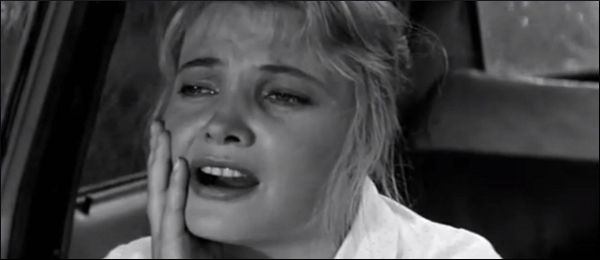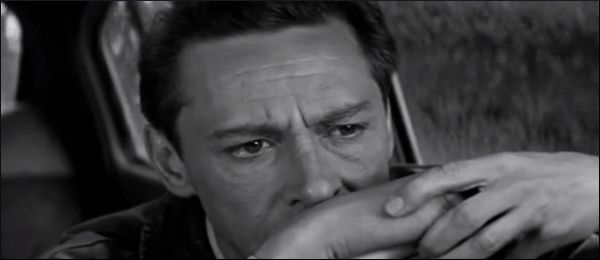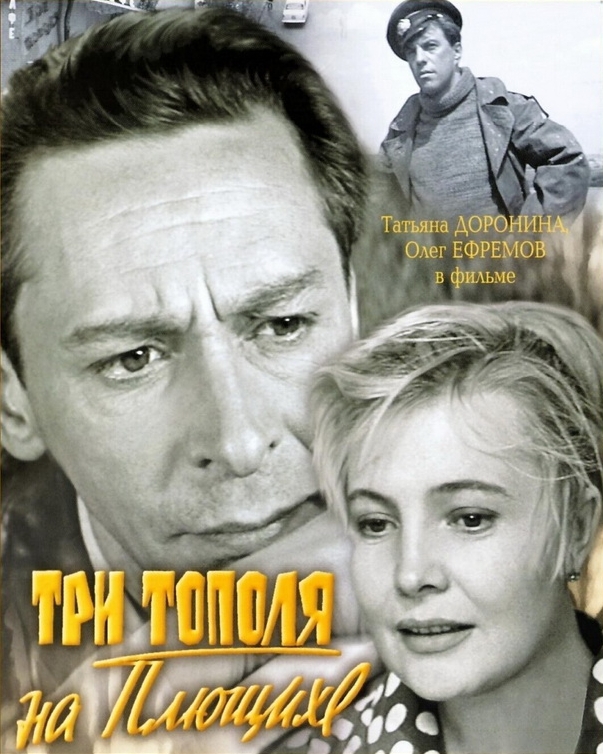Although Tatyana Lioznova was more well-known for her television spy thriller series Seventeen Moments of Spring, she also made some fine feature films, the most popular of which was perhaps Three Poplars on Plyushchikha Street, made in 1967. This is a film with few plot twists, but an extraordinary tour de force in terms of acting by both main actors.
The pivotal meeting between Niura, a rural dweller who arrives to Moscow, and Sasha, a sensitive taxi driver, takes up the majority of the film. Before they run into each other, there is a preamble to their main encounter, in which a previous passenger from the Uzbek capital of Tashkent enters the cab, as well as other early scenes set in Niura’s rural home, which explain her reasons for her trip to Moscow (to trade rural produce for items found only in the city). It is during these early passages that a language student would have the most difficulty understanding the dialogue. The first scene by the river is particularly obtuse, because the male villager's pronunciation, as well as his rural vocabulary, phraseology, and use of proverbs, reflect aspects of his rural life. An older male villager also pronounces vowels in an unusual way. For example, he adds a Russian soft sign - the letter “ъ” - to the end of a word (which has no sound itself, but alters that of the preceding consonant) or changes the vowel in the middle of a word, for example, from “rebyata” to “robyata” (lads) or from “nynche” to “nonche” (nowadays). Another villager often conjugates verbs in the future tense to refer to the present or uses the word “budet” (it will be) to mean “khvatit” (that's enough).

The central moment in the story is supplied by the song “Tenderness,” which the peasant woman sings and which structures both her encounter with Sasha and her memory of it later. Their meeting in the taxi is sufficient to carry the film forward, because the incredibly powerful close-ups of both actors etch this simple encounter onto the viewer’s psyche. It is almost a retelling of the Paris section of the Hollywood film Casablanca or, more accurately, of the British classic Brief Encounter, albeit without the middle-class constipation. Three Poplars became a cult classic for a whole generation of Soviet viewers.
"This is a film with few plot twists, but an extraordinary tour de force in terms of acting by both main actors."
The rural speech of the main female character contrasts with the more standard Russian of the rather tired, world-weary taxi driver. The gradual difference between the two begins to melt, as the taxi driver realizes that the naive peasant woman, who is nervous and shy, is a far deeper character than she appeared to be at first sight. Niura’s hesitation and bashfulness is broken down by her realization that that she has long forgotten about any personal happiness. Her hour spent with Sasha represents an epiphany in both their lives. As the film ends, with Niura’s return to the village, the song “Tenderness” plays on the radio, and her extraordinary gesture of recognition and solitude is one of the greatest homages to the power of the close-up in Soviet cinema.





